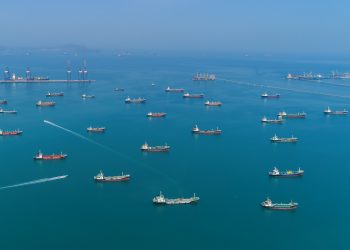After recent reports about fuel contamination at the Port of Houston initially, and then in Panama and Singapore, Intertanko blamed maritime authorities that they have not taken enough action to tackle this problem, which has caused issues to many ships.
On 26th April 2018, there were reports about sticking of fuel plungers, fuel-pump seizures and failures affecting multiple vessels when burning fuel oil bunkered in Houston, Texas. A problem that was increased.
[smlsubform prepend=”GET THE SAFETY4SEA IN YOUR INBOX!” showname=false emailtxt=”” emailholder=”Enter your email address” showsubmit=true submittxt=”Submit” jsthanks=false thankyou=”Thank you for subscribing to our mailing list”]
In addition, this problem expanded to Panama as well, while in the last update, contamination in marine fuel that clogs and damages ship engines has been found in Singapore as well.
These fuels caused many technical and mechanical problems for both for ship owners and operators. Namely, the contaminated fuel can cause engine failures and loss of propulsion, while it also risks the safety of the affected ship and crew.
As a result, Intertanko fears that this will become a global epidemic, especially considering the fact that there is ‘no sign of any coordinated effort to control and remove such contaminated fuels from the market.’
However, some authorities claimed that this problem may have been used by the shipping industry to postpone the upcoming regulation regarding the sulphur cap. Nevertheless, Intertanko dismissed these allegations, saying that they are an attempt to keep guilty parties out of the spotlight.
It specifically said that the 2020 sulphur cap is not the problem, rather than the lack of action by relevant authorities to stop the contamination. Thus, it urged for immediate action and ‘not a discussion of important but unrelated subjects.’
For starters, Intertanko called the authorities to establish and monitor investigation mechanisms in case that fuels delivered in ports put ships, their crewmembers and the environment at risk.
The association concluded by saying that:
Until the fuel supply industry and the authorities accept their share of responsibility, there is an obvious need for more public awareness in the media. A purely legal approach will not change the mindset of those who might deliberately put our crews, the environment, the ships and their cargoes in serious danger.































































